 Kleenex maker Kimberly-Clark announced it will acquire Tylenol maker in $49 billion deal. In other Company news: Kruger’s Corner Brook mill shutdown begins today; and Ontario’s Kap Paper restarts with pivot plan. In other Business news unfolding this week: BC’s forestry summit takes place today as Canadian and US industry reps speak out; FPAC’s Derek Nighbor seeks clear signals in Tuesday’s federal budget; and the US Supreme Court will consider the legality of Trump’s tariffs on Wednesday.
Kleenex maker Kimberly-Clark announced it will acquire Tylenol maker in $49 billion deal. In other Company news: Kruger’s Corner Brook mill shutdown begins today; and Ontario’s Kap Paper restarts with pivot plan. In other Business news unfolding this week: BC’s forestry summit takes place today as Canadian and US industry reps speak out; FPAC’s Derek Nighbor seeks clear signals in Tuesday’s federal budget; and the US Supreme Court will consider the legality of Trump’s tariffs on Wednesday.
In Forestry/Climate news: wildfires spark disagreement as US pushes Canada to lean into forest management; how Trump’s costs hinder wildfire prevention; and fire-season wrap-ups from BC and Alberta. Meanwhile: a new film marks anniversary of Haida logging blockade; EU ministers consider GHG brake-clause, as their ambassadors seek delay of anti-deforestation laws; and bamboo tissue may not be as eco-friendly as thought.
Finally, why the continuation of the SLB is vital to the future of the lumber industry.
Kelly McCloskey, Tree Frog News Editor
 VANCOUVER — Politicians from B.C. and Ottawa will meet in Vancouver today for a forestry summit on how to prop up the industry in the face of American fees and tariffs topping 50 per cent. Federal politicians including Dominic LeBlanc, the minister responsible for Canada-U.S. trade, along with B.C. Premier David Eby and his forests and jobs ministers, are set to discuss ways to support workers and businesses being hammered by the increased fees. In September, the Americans imposed anti-dumping and countervailing duties on Canadian companies ranging from 26 per cent to more than 47 per cent, and then added another 10 per cent last month, claiming Canada’s industry is a U.S. national security threat. B.C.’s goal for the summit is to push for more federal help for the industry that employs tens of thousands of workers in the province. The softwood lumber dispute has been a friction point for decades.
VANCOUVER — Politicians from B.C. and Ottawa will meet in Vancouver today for a forestry summit on how to prop up the industry in the face of American fees and tariffs topping 50 per cent. Federal politicians including Dominic LeBlanc, the minister responsible for Canada-U.S. trade, along with B.C. Premier David Eby and his forests and jobs ministers, are set to discuss ways to support workers and businesses being hammered by the increased fees. In September, the Americans imposed anti-dumping and countervailing duties on Canadian companies ranging from 26 per cent to more than 47 per cent, and then added another 10 per cent last month, claiming Canada’s industry is a U.S. national security threat. B.C.’s goal for the summit is to push for more federal help for the industry that employs tens of thousands of workers in the province. The softwood lumber dispute has been a friction point for decades.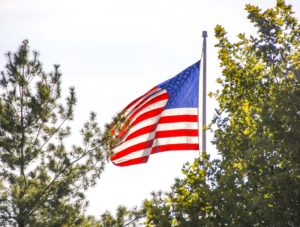 WASHINGTON — Donald Trump’s tariff agenda is set to face a major legal hurdle in the US Supreme Court this week but no matter the ruling, it will not spare Canada from all of the president’s devastating duties. The US Supreme Court will hear arguments Wednesday from businesses and states that say Trump’s use of a national security statute — the International Emergency Economic Powers Act of 1977 — to hit nearly every nation with tariffs is illegal. The hearing will combine two cases: one pushing back on what are usually referred to as Trump’s reciprocal tariffs and the other which also argues against the fentanyl-related duties on Canada, Mexico and China. It will not impact Trump’s expanding use of tariffs under Section 232 of the Trade Expansion Act of 1962. …Carlo Dade at the University of Calgary’s School of Public Policy, said no matter the outcome of the hearing, Canada will be facing tariffs.
WASHINGTON — Donald Trump’s tariff agenda is set to face a major legal hurdle in the US Supreme Court this week but no matter the ruling, it will not spare Canada from all of the president’s devastating duties. The US Supreme Court will hear arguments Wednesday from businesses and states that say Trump’s use of a national security statute — the International Emergency Economic Powers Act of 1977 — to hit nearly every nation with tariffs is illegal. The hearing will combine two cases: one pushing back on what are usually referred to as Trump’s reciprocal tariffs and the other which also argues against the fentanyl-related duties on Canada, Mexico and China. It will not impact Trump’s expanding use of tariffs under Section 232 of the Trade Expansion Act of 1962. …Carlo Dade at the University of Calgary’s School of Public Policy, said no matter the outcome of the hearing, Canada will be facing tariffs. The head of the Forest Products Association of Canada wants the upcoming federal budget to help “future-proof” the forestry sector while tariffs and duties pile up, as some mills have already been forced to curtail production or close. “Let’s not waste a crisis,” said Derek Nighbor, FPAC’s president and CEO. “Let’s use this as a moment to future-proof and future-ready our industry, and to support our workers and ensure that some of these mills can operate, for decades to come.” …When the budget is shared Nov. 4, Nighbor will be looking for more details on spending to help the forestry industry diversify its export markets. He also expects to learn more about spending on innovation to help retool mills and support a growing, mass timber, prefabricated modular homebuilding industry. …Lana Payne, Unifor’s national president, said she also wants to see a made-in-Canada housing strategy that relies on Canadian lumber.
The head of the Forest Products Association of Canada wants the upcoming federal budget to help “future-proof” the forestry sector while tariffs and duties pile up, as some mills have already been forced to curtail production or close. “Let’s not waste a crisis,” said Derek Nighbor, FPAC’s president and CEO. “Let’s use this as a moment to future-proof and future-ready our industry, and to support our workers and ensure that some of these mills can operate, for decades to come.” …When the budget is shared Nov. 4, Nighbor will be looking for more details on spending to help the forestry industry diversify its export markets. He also expects to learn more about spending on innovation to help retool mills and support a growing, mass timber, prefabricated modular homebuilding industry. …Lana Payne, Unifor’s national president, said she also wants to see a made-in-Canada housing strategy that relies on Canadian lumber. Uh oh. BC Premier David Eby is about to launch his own anti-tariff advertising campaign aimed at US citizens. Eby said this week he expects ads targeting US lumber penalties to begin airing some time in November. It’s safe to say they will not mention Ronald Reagan. …Eby’s teaser for the BC ad campaign shows stacks of Canadian lumber, overlaid with a simplified graph of “winners” and “losers,” terms US President Trump likes to use. In these ads, the losers are American consumers and the Canadian lumber industry, and the winners are the Russians. “It’s important to speak directly to Americans looking to build homes or renovate,” Eby said. …Eby’s got a better case on lumber trade than Ford has on cars and trucks. US home builders have acknowledged that they can’t produce enough lumber for domestic needs, despite Trump’s claim that the US has plenty of trees.
Uh oh. BC Premier David Eby is about to launch his own anti-tariff advertising campaign aimed at US citizens. Eby said this week he expects ads targeting US lumber penalties to begin airing some time in November. It’s safe to say they will not mention Ronald Reagan. …Eby’s teaser for the BC ad campaign shows stacks of Canadian lumber, overlaid with a simplified graph of “winners” and “losers,” terms US President Trump likes to use. In these ads, the losers are American consumers and the Canadian lumber industry, and the winners are the Russians. “It’s important to speak directly to Americans looking to build homes or renovate,” Eby said. …Eby’s got a better case on lumber trade than Ford has on cars and trucks. US home builders have acknowledged that they can’t produce enough lumber for domestic needs, despite Trump’s claim that the US has plenty of trees.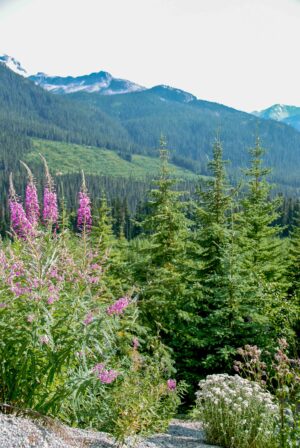




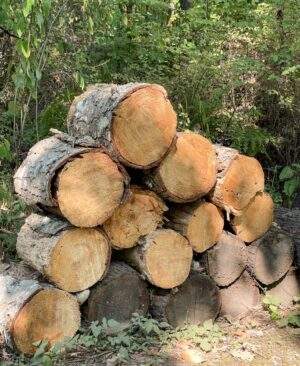 Arkansas’ timber industry, like Arkansas’ agriculture industry, is in trouble. The causes of the trouble are various, but one cause stands out for both: the Trump administration’s trade war. In October, Arkansas House Speaker Brian Evans, R-Cabot, joined the speakers of the Alabama, Georgia, Florida and South Carolina houses of representatives urging Congress to move to relieve “an industry in crisis.” “Under current US trade policy, products and shipments from US exporters are becoming stuck en route to their final destination due to immediately imposed tariffs,” the letter said. The state’s forestry sector supports more than 50,000 jobs and contributes about $6.1 billion to Arkansas’ economy, more than 4% of the state’s GDP. “The trade war has impacted our ability to export hardwood logs out of Arkansas,” Matthew Pelkki, at the University of Arkansas at Monticello, said. [to access the full story an Arkansas Business subscription is required]
Arkansas’ timber industry, like Arkansas’ agriculture industry, is in trouble. The causes of the trouble are various, but one cause stands out for both: the Trump administration’s trade war. In October, Arkansas House Speaker Brian Evans, R-Cabot, joined the speakers of the Alabama, Georgia, Florida and South Carolina houses of representatives urging Congress to move to relieve “an industry in crisis.” “Under current US trade policy, products and shipments from US exporters are becoming stuck en route to their final destination due to immediately imposed tariffs,” the letter said. The state’s forestry sector supports more than 50,000 jobs and contributes about $6.1 billion to Arkansas’ economy, more than 4% of the state’s GDP. “The trade war has impacted our ability to export hardwood logs out of Arkansas,” Matthew Pelkki, at the University of Arkansas at Monticello, said. [to access the full story an Arkansas Business subscription is required] Kimberly-Clark is buying Tylenol maker Kenvue in a cash and stock deal worth about $48.7 billion, creating a massive consumer health goods company. Shareholders of Kimberly-Clark will own about 54% of the combined company. Kenvue shareholders will own about 46%. The combined company will have a large stable of household brands under one roof, putting Kenvue’s Listerine mouthwash and Band-Aid side-by-side with Kimberly-Clark’s Cottonelle toilet paper, Huggies and Kleenex tissues. It will also generate about $32 billion in annual revenue. Kenvue has spent a relatively brief period as an independent company, having been spun off by Johnson & Johnson two years ago. The deal announced Monday is among the largest corporate takeovers of the year. …The deal is expected to close in the second half of next year. It still needs approval from shareholders of both both companies. …Shares of Kimberly-Clark slipped more than 15% before the market open, while Kenvue’s stock jumped more than 20%.
Kimberly-Clark is buying Tylenol maker Kenvue in a cash and stock deal worth about $48.7 billion, creating a massive consumer health goods company. Shareholders of Kimberly-Clark will own about 54% of the combined company. Kenvue shareholders will own about 46%. The combined company will have a large stable of household brands under one roof, putting Kenvue’s Listerine mouthwash and Band-Aid side-by-side with Kimberly-Clark’s Cottonelle toilet paper, Huggies and Kleenex tissues. It will also generate about $32 billion in annual revenue. Kenvue has spent a relatively brief period as an independent company, having been spun off by Johnson & Johnson two years ago. The deal announced Monday is among the largest corporate takeovers of the year. …The deal is expected to close in the second half of next year. It still needs approval from shareholders of both both companies. …Shares of Kimberly-Clark slipped more than 15% before the market open, while Kenvue’s stock jumped more than 20%.
 Chinese tissue paper made from bamboo has emerged as a trendy choice for eco-friendly shoppers. However, new research suggests these bamboo paper products may not offer significant climate benefits over tissue produced in the United States and, in some cases, may be more detrimental to the environment. North Carolina State University researchers compared the carbon footprint of bamboo tissue paper manufactured in China with that of conventional tissue paper manufactured in the U.S. and Canada. They found that… the fossil fuel-heavy power grid in China led to significant increases in emissions compared with cleaner fuel sources used in North America. “As far as emissions go, the technology used to create hygiene tissue paper is far more important than the type of fiber it’s made from,” said Naycari Forfora, lead author of the study…. “Because the Chinese power grid is so reliant on coal for power, emissions … are higher than the wood-based option.”
Chinese tissue paper made from bamboo has emerged as a trendy choice for eco-friendly shoppers. However, new research suggests these bamboo paper products may not offer significant climate benefits over tissue produced in the United States and, in some cases, may be more detrimental to the environment. North Carolina State University researchers compared the carbon footprint of bamboo tissue paper manufactured in China with that of conventional tissue paper manufactured in the U.S. and Canada. They found that… the fossil fuel-heavy power grid in China led to significant increases in emissions compared with cleaner fuel sources used in North America. “As far as emissions go, the technology used to create hygiene tissue paper is far more important than the type of fiber it’s made from,” said Naycari Forfora, lead author of the study…. “Because the Chinese power grid is so reliant on coal for power, emissions … are higher than the wood-based option.”
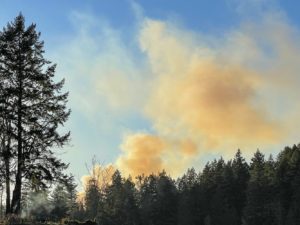 FORT ST. JOHN, BC — Every single wildfire in northeast B.C. is now either ‘under control’ or extinguished as temperatures decline and snow starts to fall across the province. The BC Wildfire Service website shows the last two ‘out of control’ wildfires in the region, both located near Fort Nelson — are now ‘under control.’That means they’re not expected to spread beyond their current boundaries, as opposed to an ‘out of control’ wildfire that’s expected to keep burning aggressively. …Several other wildfires that were previously listed as ‘being held’ — meaning they’re expected to temporarily remain within their current boundaries, but could become ‘out of control’ again — have also been downgraded to ‘under control.’ …This year’s wildfire season saw over 300 wildfires in the PGFC coverage area.
FORT ST. JOHN, BC — Every single wildfire in northeast B.C. is now either ‘under control’ or extinguished as temperatures decline and snow starts to fall across the province. The BC Wildfire Service website shows the last two ‘out of control’ wildfires in the region, both located near Fort Nelson — are now ‘under control.’That means they’re not expected to spread beyond their current boundaries, as opposed to an ‘out of control’ wildfire that’s expected to keep burning aggressively. …Several other wildfires that were previously listed as ‘being held’ — meaning they’re expected to temporarily remain within their current boundaries, but could become ‘out of control’ again — have also been downgraded to ‘under control.’ …This year’s wildfire season saw over 300 wildfires in the PGFC coverage area.

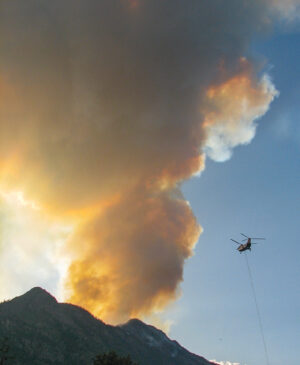 Alberta’s wildfire season unofficially came to an end Oct. 31, though there are still 30 burning. Since the season began on March 1, there have been 1,245 wildfires across the province. Nearly 682,000 hectares were scorched—slightly less than 2024 (705,621) and much less than 2023 (2,212,399). The Calgary Forest Area had 63 wildfires that burned around 35 hectares—the lowest number compared to the other zones in the province. The Slave Lake Forest Area was the most damaged, with more than 379,000 hectares burned from 214 wildfires. The moderate fire season around Calgary was thanks to normal temperatures from June to August, with a warmer May and September. The rain also kept fires at bay with the third-wettest July on record in Calgary. According to Environment and Climate Change Canada, there were 110 hours of smoke this year. “This is not a lot compared to most of the recent years,” said Natalie Hasell, ECCC warning preparedness meteorologist.
Alberta’s wildfire season unofficially came to an end Oct. 31, though there are still 30 burning. Since the season began on March 1, there have been 1,245 wildfires across the province. Nearly 682,000 hectares were scorched—slightly less than 2024 (705,621) and much less than 2023 (2,212,399). The Calgary Forest Area had 63 wildfires that burned around 35 hectares—the lowest number compared to the other zones in the province. The Slave Lake Forest Area was the most damaged, with more than 379,000 hectares burned from 214 wildfires. The moderate fire season around Calgary was thanks to normal temperatures from June to August, with a warmer May and September. The rain also kept fires at bay with the third-wettest July on record in Calgary. According to Environment and Climate Change Canada, there were 110 hours of smoke this year. “This is not a lot compared to most of the recent years,” said Natalie Hasell, ECCC warning preparedness meteorologist.

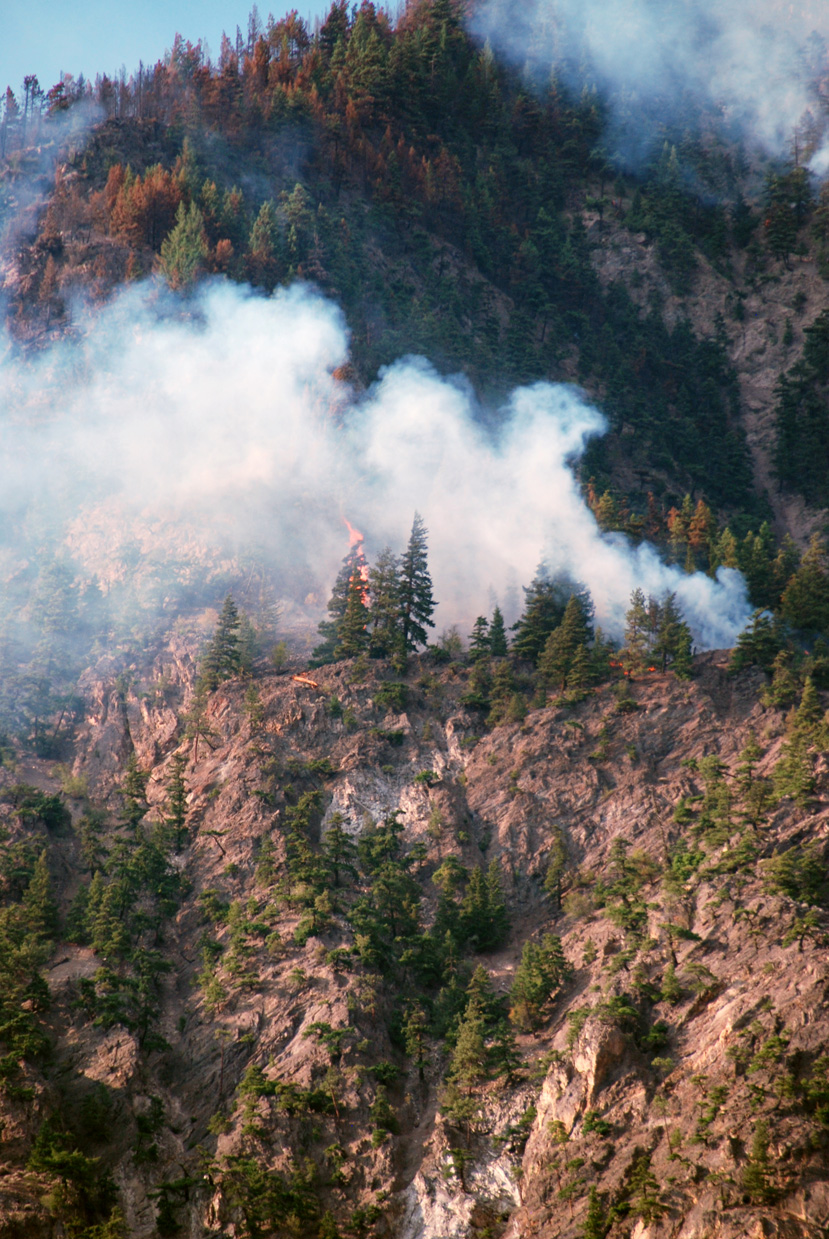 For more than 15 years, Scott Fitzwilliams led … the “crown jewel” of U.S. federal land — 2.2 million acres in Colorado that includes world class ski resorts… and sees a lot of wildfire. So when he was told in February to fire more than a dozen U.S. Forest Service employees from White River National Forest, one of his main concerns was: Will enough people be around to make sure the next big blaze doesn’t get out of control? …Fitzwilliams resigned in protest over the cuts, part of the Trump administration’s efforts to reduce the federal workforce… Eight months later, a new report confirms some of Fitzwilliams’s fears. A data analysis shared with The Washington Post found that as of the end of September, Forest Service work to reduce fire-fueling debris was down nearly 40 percent on this date compared with where it has been on average over the previous four years… [A subscription to the Washington Post is required for full story access]
For more than 15 years, Scott Fitzwilliams led … the “crown jewel” of U.S. federal land — 2.2 million acres in Colorado that includes world class ski resorts… and sees a lot of wildfire. So when he was told in February to fire more than a dozen U.S. Forest Service employees from White River National Forest, one of his main concerns was: Will enough people be around to make sure the next big blaze doesn’t get out of control? …Fitzwilliams resigned in protest over the cuts, part of the Trump administration’s efforts to reduce the federal workforce… Eight months later, a new report confirms some of Fitzwilliams’s fears. A data analysis shared with The Washington Post found that as of the end of September, Forest Service work to reduce fire-fueling debris was down nearly 40 percent on this date compared with where it has been on average over the previous four years… [A subscription to the Washington Post is required for full story access]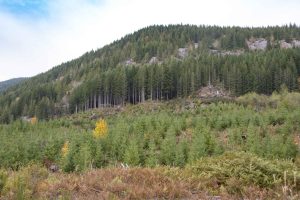 Durable, renewable and biodegradable, wood is an ideal material. And as we grapple with the aftermath of synthetic materials, such as forever chemicals and microplastics, the humble material growing in our literal backyards is suddenly looking pretty appealing again. But how do you know it wasn’t clearcut from a rainforest? Figuring out logging practices, deforestation policies, impact on wildlife, pesticide use, and impact on indigenous communities “can be really challenging”, said Linda Walker at the World Wildlife Fund. …That’s where certifications come in. A growing number of wood industry certifications are designed to guide consumers. They’re not perfect. Some have rules written by big timber. Almost all of them receive payments from companies seeking certifications. There is no seal that encompasses every issue, but don’t let perfect be the enemy of good – even the most flawed badges have some baseline value.
Durable, renewable and biodegradable, wood is an ideal material. And as we grapple with the aftermath of synthetic materials, such as forever chemicals and microplastics, the humble material growing in our literal backyards is suddenly looking pretty appealing again. But how do you know it wasn’t clearcut from a rainforest? Figuring out logging practices, deforestation policies, impact on wildlife, pesticide use, and impact on indigenous communities “can be really challenging”, said Linda Walker at the World Wildlife Fund. …That’s where certifications come in. A growing number of wood industry certifications are designed to guide consumers. They’re not perfect. Some have rules written by big timber. Almost all of them receive payments from companies seeking certifications. There is no seal that encompasses every issue, but don’t let perfect be the enemy of good – even the most flawed badges have some baseline value.

